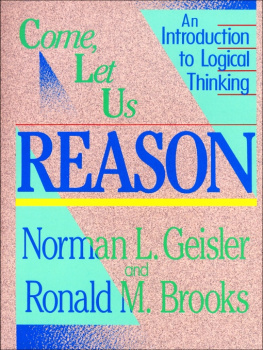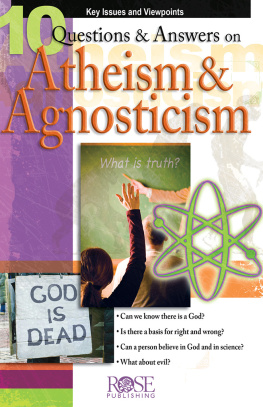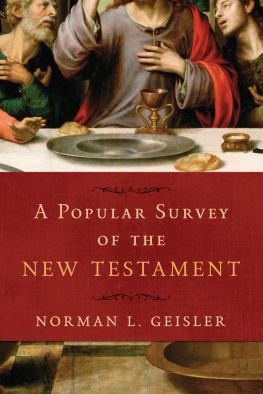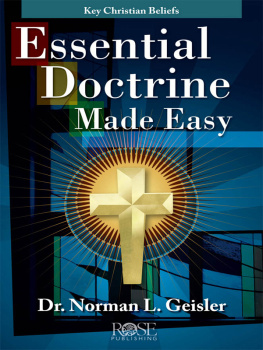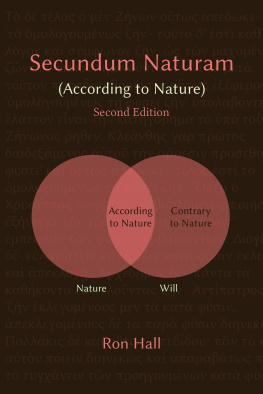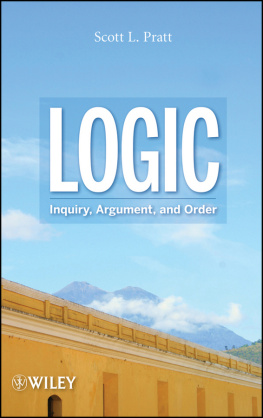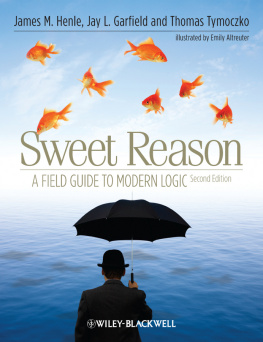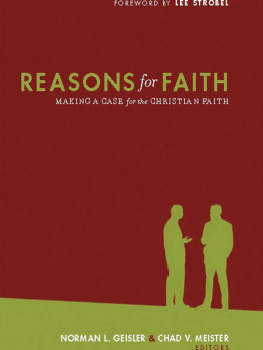Norman L. Geisler - Come, Let Us Reason: An Introduction to Logical Thinking
Here you can read online Norman L. Geisler - Come, Let Us Reason: An Introduction to Logical Thinking full text of the book (entire story) in english for free. Download pdf and epub, get meaning, cover and reviews about this ebook. year: 1990, publisher: Baker Academic, genre: Religion. Description of the work, (preface) as well as reviews are available. Best literature library LitArk.com created for fans of good reading and offers a wide selection of genres:
Romance novel
Science fiction
Adventure
Detective
Science
History
Home and family
Prose
Art
Politics
Computer
Non-fiction
Religion
Business
Children
Humor
Choose a favorite category and find really read worthwhile books. Enjoy immersion in the world of imagination, feel the emotions of the characters or learn something new for yourself, make an fascinating discovery.
- Book:Come, Let Us Reason: An Introduction to Logical Thinking
- Author:
- Publisher:Baker Academic
- Genre:
- Year:1990
- Rating:3 / 5
- Favourites:Add to favourites
- Your mark:
- 60
- 1
- 2
- 3
- 4
- 5
Come, Let Us Reason: An Introduction to Logical Thinking: summary, description and annotation
We offer to read an annotation, description, summary or preface (depends on what the author of the book "Come, Let Us Reason: An Introduction to Logical Thinking" wrote himself). If you haven't found the necessary information about the book — write in the comments, we will try to find it.
Come, Let Us Reason: An Introduction to Logical Thinking — read online for free the complete book (whole text) full work
Below is the text of the book, divided by pages. System saving the place of the last page read, allows you to conveniently read the book "Come, Let Us Reason: An Introduction to Logical Thinking" online for free, without having to search again every time where you left off. Put a bookmark, and you can go to the page where you finished reading at any time.
Font size:
Interval:
Bookmark:
Come, Let Us Reason
Come,
Let Us Reason
An Introduction to Logical Thinking
Norman L. Geisler
and
Ronald M. Brooks

Copyright 1990 by
Baker Book House Company
Printed in the United States of America
Library of Congress CataloginginPublication Data
Geisler, Norman L.
Come, let us reason: an introduction to logical thinking/Norman L.
Geisler and Ronald M. Brooks.
p. cm.
Includes bibliographical references and index.
ISBN 0-8010-3836-7
1. Logic. 2. Philosophy and religion. I. Brooks, Ronald M. (Ronald
Matthew), 1957 . II. Title.
BC108.G331990
160dc20 9038822
CIP
Unless otherwise noted, all Scripture references are taken from the New American Standard Bible, copyright 1960, 1962, 1963, 1968, 1971, 1972, 1973, 1975, and 1977 by Lockman Foundation.
Contents
God is rational, and he has created us as rational beings. The Bible urges us to give the reason for the hope that is in us (1 Pet. 3:15, NIV). Indeed, Jesus declared that the greatest commandment is: You shall love the Lord your God with all your mind (Matt. 22:37). The apostle Paul added, whatever is true, think on (Phil. 4:8). Thinking is not an option for the Christian; it is an imperative.
Of course, everyone thinks. But not everyone thinks correctly. The name of the discipline that is geared to correcting this problem is logic. The late professor Gordon H. Clark pressed this point when he boldly, if not entirely accurately, translated John 1:1 this way: In the beginning was Logic [the Logos]. And Logic was with God, and Logic was God. Of course, God is more than a rational being; he also has feeling and free will. Nonetheless, God is rational, and the principles of good reason do flow from his very nature. Consequently, learning the rules of clear and correct reasoning is more than an academic exercise. For the Christian, it is also a means of spiritual service.
I am personally indebted to my first logic teacher, Howard Schoof. His exhortation seems more appropriate as the years roll by: The next best thing besides godliness for a Christian is logic. Clean living and correct thinking make a potent combination. In short, we should get our life cleaned up on the outside and our thinking cleared up on the inside.
The need for clear and correct thinking has not diminished with time. With the infiltration of New Age thinking into our culture, there is an increased emphasis on feeling over thinking, on the subjective over the objective. Shirley MacLaine, pop theologian of the New Age movement, was surely out on a limb when she wrote: Dont evaluate and dont let your left brain judge what you are thinking. Give your left brain more space. As a matter of fact, dont think (Dancing in the Light, 312). It is hard to think of worse advice. It is one of our purposes in writing this book to correct this kind of nonthinking.
There are, of course, many other books available on how to think. (Some of them are listed in the Bibliography.) Why another? First, there are few directed at Christians. Further, many available books go right over the head of the average person. Finally, none use theological and apologetic illustrations throughout. This book is different in all these ways. I hope this invitation to good thinking will dawn like the morning sun, burning away some of the fog created by a feeling-dominated culture.
Norman L. Geisler
In the summer before my freshman year of college I began reading a book that changed my life. It was Aristotles PriorAnalytics, his text on logic. As I sat in the courtyard of an abandoned dormitory, his thoughts gave me the structure that I had been missing in my own attempts to understand the world. Eighteen months later I found myself entering a church service and the first words I heard were those of Isaiah 1:18, Come, now, let us reason together Though your sins are as scarlet they will be as white as snow. That morning I came face to face with the stark reality that the faith which I had repudiated and reviled was indeed the truth, and I became a Christian.
God and I have done a great deal of reasoning together since then. Though my spiritual life certainly has not been void of emotionalism and fits of both rigor and contrition, the most dramatic changes in meand those that I find most liberatinghave been intellectual transformations. Paul anticipated this when he defined discipleship as the renewing of your mind(Rom. 12:2) and called for destroying speculations taking every thought captive to the obedience of Christ (2 Cor. 10:5). If, after all, angels are pure intellect and we are in spiritual warfare with them, then it must be a battle of ideas. This book should be considered basic training for that battle, for herein lie the keys to discernment.
A special thanks to Drs. Richard Owlsley, Anthony Damico, and Jake Kobler for introducing me to Aristotle, logic, and discernment, for these lead me to the Truth.
Ronald M. Brooks
Without the help of many others this book would not be possible. Special thanks is due to Drs. Phil West and Richard Howe, both logic teachers, who made many helpful additions. Likewise, E. Calvin Beisner made a significant contribution in editing the manuscript. In addition, our thanks go to Mark Foreman, who wrote the exercises, appendix, glossary, and indexes; and to our office staff: Sharon Coomer, Terry Hayden, and Chris Coomer, who together collated the index. The book is much improved as a result of their efforts.
It is the function of the wise man to know
order.Aristotle
What is logic? And why in the world would anyone want to study it? Isnt it just a bunch of incomprehensible and arbitrary rules that no one really follows anyway? What good does it do? To most people, logic is an unknown language about an unknown realm, where everything is turned upside down and no one with an IQ below 300 is allowed. You can see it in the panic on their faces when you just mention the wordLOGIC!
Despite all the bad press, logic is not so tough. In fact, it is one of the simplest things to use because you use it all the time, though you may not realize it. We dont mean that you put all of your thoughts into logical form and do a formal analysis of each thought. But when you are at the supermarket and one brand of sugar is 3 cents per ounce but another is 39 cents per pound, it doesnt take long for you to pull out your calculator and settle the issue. Why do you do that? Because you recognize that those ounces and pounds have to be put in the same category to be compared. Thats logic. You use logic to do most everything. When you decide to take your shower after you work out instead of before, you dont necessarily go through all the formal steps it takes to reach that conclusion validly, but your decision rests on logic nonetheless. Logic really means puttingyour thoughts in order.
What Is Logic?
Order is the key word. It applies to all kinds of different disciplines. In nature, there is an order that reason discovers but does not produce. The patterns of quartz crystals, the regularity of natural laws, the movements of the planets, the complex information in a single strand of DNAall these show us an order that we can see but that we did nothing to put there, just as you can read this book, but you didnt put the words on the pages.
In art, however, we do produce order. The artist, whether a painter, sculptor, composer, actor, or writer, imposes order on the things around him. He crafts the lines he wants to see. He bends the steel to suit his purpose. He arranges the rhythms, the melodies, and the harmonies to express a certain feeling. Art is created by a person imposing order on the things of the external world.
Next pageFont size:
Interval:
Bookmark:
Similar books «Come, Let Us Reason: An Introduction to Logical Thinking»
Look at similar books to Come, Let Us Reason: An Introduction to Logical Thinking. We have selected literature similar in name and meaning in the hope of providing readers with more options to find new, interesting, not yet read works.
Discussion, reviews of the book Come, Let Us Reason: An Introduction to Logical Thinking and just readers' own opinions. Leave your comments, write what you think about the work, its meaning or the main characters. Specify what exactly you liked and what you didn't like, and why you think so.

